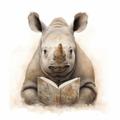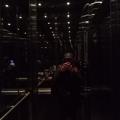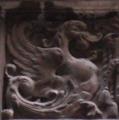Katch reviewed Babel by R. F Kuang (duplicate)
Great themes, good characters, and thoughtful writing
What first struck me was how this book used a smidge of magic to allow certain aspects of themes to be easier to comprehend. The writing does something with themes where it makes them recognizable and able to be investigated in more profound ways by shearing off the sides, so to speak. Yet while I noticed this up front, I was surprised how deep the book went as it reached its zenith and turned toward a conclusion. There were comments about colonialism and empire that I recognized, but the way they were delved into thanks to the aforementioned tactic struck me more deeply than I could have expected. The characters, despite being somewhat symbolic in their deployment, also grew on me immensely. It made me think, and it made my eyes tear up a few times. And that's without mentioning all the fun translation, history, and cultural movement details the …
What first struck me was how this book used a smidge of magic to allow certain aspects of themes to be easier to comprehend. The writing does something with themes where it makes them recognizable and able to be investigated in more profound ways by shearing off the sides, so to speak. Yet while I noticed this up front, I was surprised how deep the book went as it reached its zenith and turned toward a conclusion. There were comments about colonialism and empire that I recognized, but the way they were delved into thanks to the aforementioned tactic struck me more deeply than I could have expected. The characters, despite being somewhat symbolic in their deployment, also grew on me immensely. It made me think, and it made my eyes tear up a few times. And that's without mentioning all the fun translation, history, and cultural movement details the writing wove in so elegantly! As a professional translator, it captured my intellect, my heart, and my imagination.







